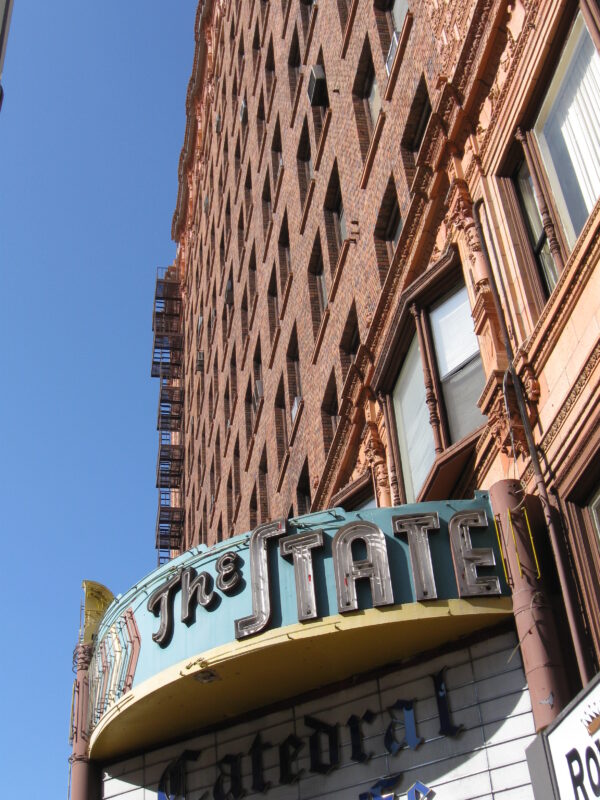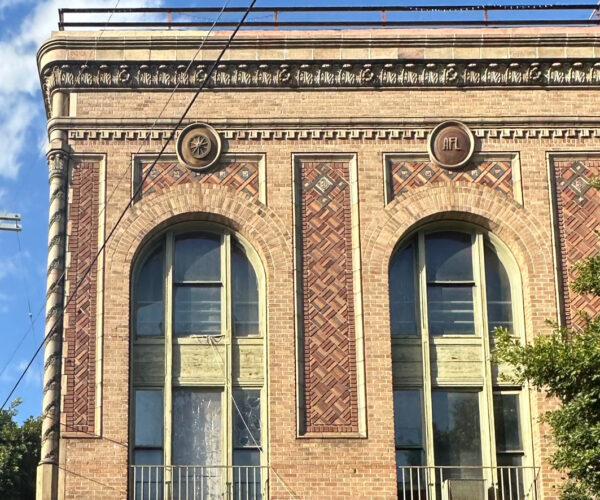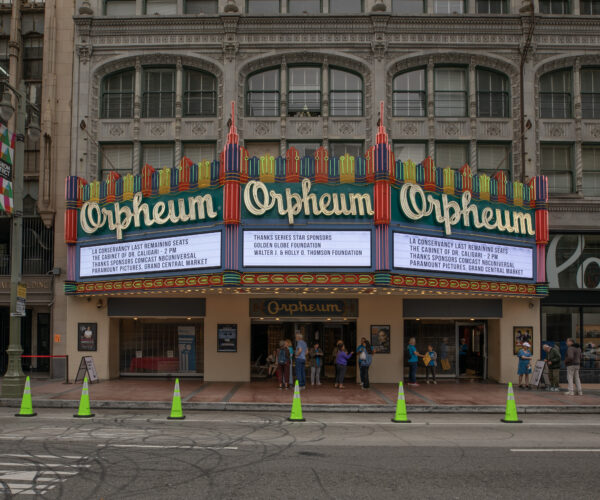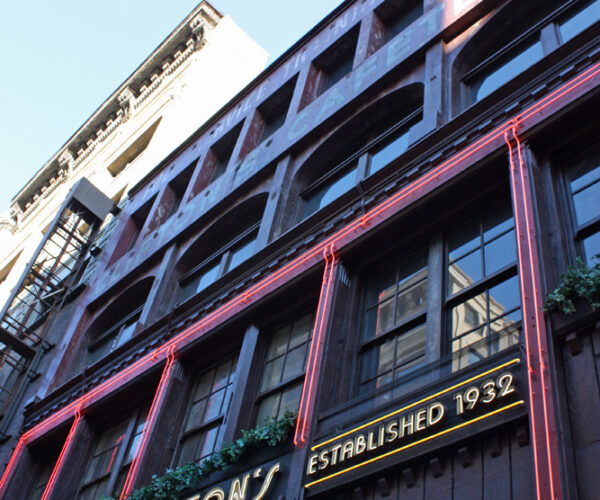
Place
State Theatre and Building
The State Theatre (1921) designed by Weeks & Day is a twelve-story Beaux Art style structure with a brick façade – one of the largest brick-clad buildings in the city – with terra cotta ornamentation at the lower levels.
Place Details
Address
Get directions
Architect
Year
Style
Decade
Community

Photo by Annie Laskey/Los Angeles Conservancy | Photo by Annie Laskey/Los Angeles Conservancy
The Loew’s State Theatre (today’s State Theatre) opened on November 12, 1921 with a vaudeville show and the premiere of the film A Trip to Paradise.
The State Theatre is a twelve-story Beaux Art style structure with a brick façade – one of the largest brick-clad buildings in the city – with terra cotta ornamentation at the lower levels. Designed by Weeks & Day, the theatre originally had two marquees, one for the Broadway entrance and another for its 7th Street entrance. However, only the Broadway marquee remains.
The interior design of the theatre references a Spanish castle with distressed stencil work on the plaster ceilings of lobby and auditorium appearing as wood. A similar method was used to give the lobby’s walls a look of a castle’s ancient stonework. Virtually square, the auditorium seats 2,450 below a highly ornamented, geometrically arranged ceiling; from which a large chandelier is suspended.
As an MGM theatre (Marcus Loew co-founded Metro-Goldwyn-Mayer in 1924), and with its strategic Broadway and Seventh Street corner location intersected by busy streetcars, the State Theatre was a consistent money-maker.
In the 1930s, the theatre changed ownership and the outside entrance on Broadway was changed to the current Greco-roman style and the 7th street marquee was removed.
By the 1960s, the theatre was showing first-run Spanish language films. The theatre closed its doors in the 1990s, reopening in the mid-2000s as the Universal Church of Christ.
The Conservancy does not own or operate the State Theatre and Building. For any requests, please contact the State Theatre and Building directly.


